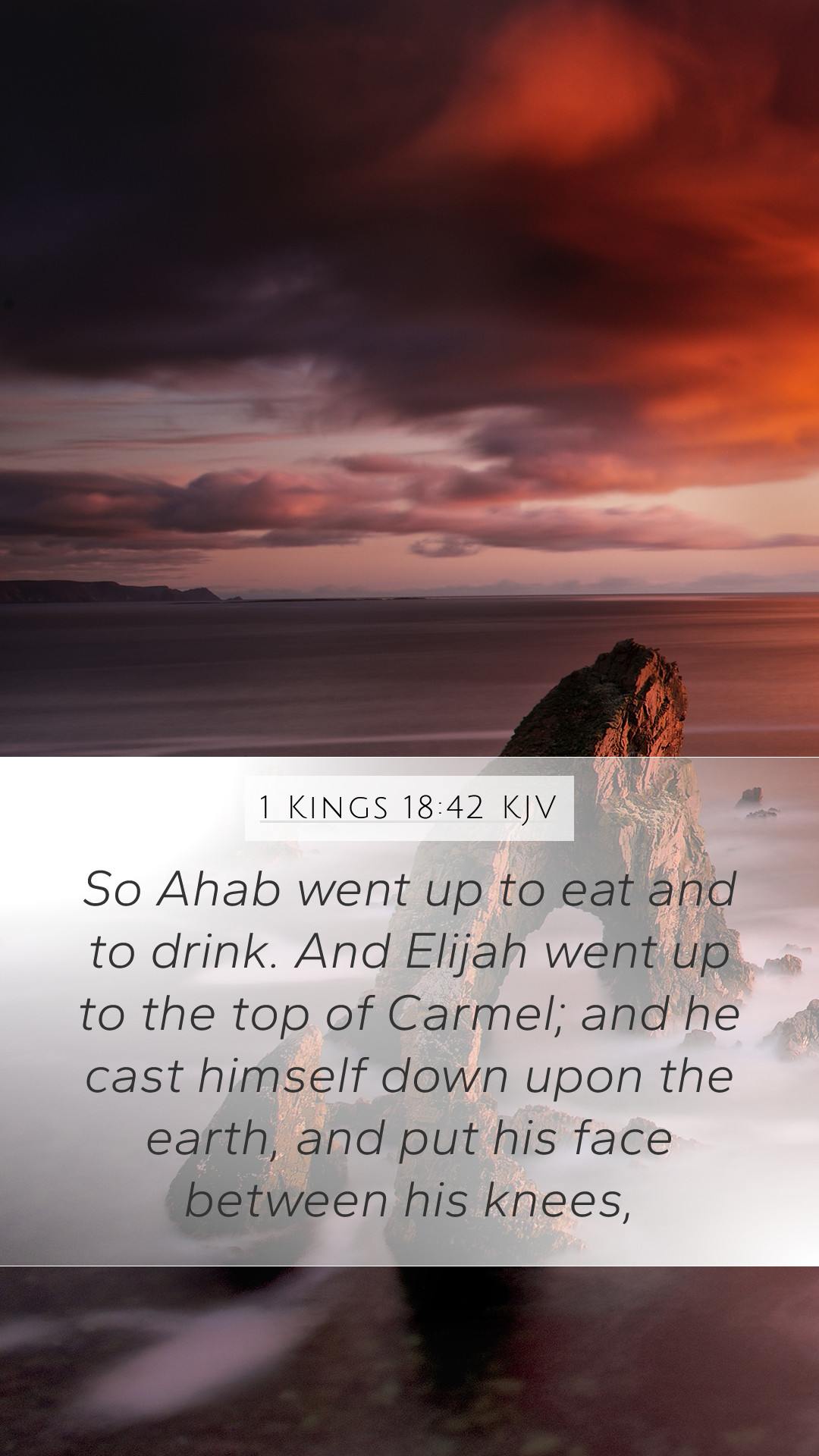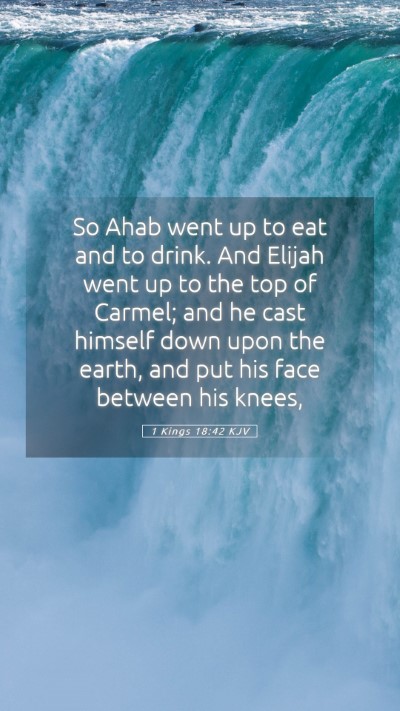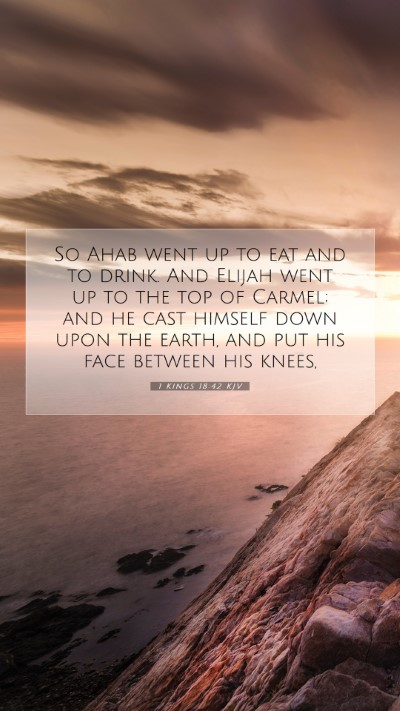Understanding 1 Kings 18:42
Verse: "So Ahab went up to eat and drink. And Elijah went up to the top of Carmel; then he bowed down on the ground, and put his face between his knees."
Overview
The verse 1 Kings 18:42 is a continuation of the narrative detailing the confrontation between the prophet Elijah and the prophets of Baal. This moment occurs after the dramatic victory over the prophets of Baal on Mount Carmel, where fire from heaven consumed Elijah's sacrifice. The verse showcases the deep faith and earnest prayer of Elijah as he seeks God's will regarding the drought in Israel.
Bible Verse Meaning
This verse can be examined through various biblical commentaries to gain a deeper understanding:
- Matthew Henry's Commentary: Henry emphasizes Elijah's act of prayer and humility. Bowing with his face between his knees signifies a posture of deep supplication and earnestness. This gesture demonstrates Elijah's dependence on God amidst the great task before him. It is a reminder of the power of prayer and the necessity of humility before God.
- Albert Barnes' Notes: Barnes notes that Elijah’s actions reflect both his role as a prophet and as a servant of God, fully dedicated to his mission. He points out the significance of Elijah's location on Mount Carmel, which was a place of revelation and divine intervention. Elijah’s prayer signifies a powerful moment where divine interaction and human intercession meet, highlighting the importance of seeking God's guidance in times of need.
- Adam Clarke's Commentary: Clarke interprets this verse by analyzing the cultural and historical context of prayer in biblical times. He remarks on Elijah's fervor and persistence in prayer, illustrating the principle that strong faith often requires continuous seeking after God. Clarke also relates Elijah’s actions to the Jewish tradition of prayer postures, allowing readers to appreciate the cultural significance of Elijah's physical expression of prayer.
Key Points from Commentaries
- The importance of prayer: Elijah's earnestness highlights the essential need for prayer in seeking God's will.
- Posture of humility: The physical act of bowing demonstrates submission to God, a key aspect of effective prayer.
- Context of divine intervention: Elijah was in a crucial moment for Israel, emphasizing that prayer can lead to transformative actions in a nation's life.
Applications for Today
Understanding 1 Kings 18:42 can be applied to modern life in various ways:
- Faithfulness in prayer: Just as Elijah showed determination, modern believers are encouraged to maintain persistence in their prayers, believing that God will answer in His timing.
- Dependency on God: Recognizing our dependence on God reflects the spiritual posture of humility, essential for effective prayer life.
- Seeking God’s direction: In challenging circumstances, turning to God in prayer for guidance is as relevant today as it was during Elijah's time.
Cross References
- James 5:17-18 - "Elijah was a man with a nature like ours, and he prayed fervently that it might not rain..." This passage emphasizes Elijah's humanity and the power of prayer.
- 1 Kings 18:1 - This verse sets the scene for Elijah's confrontation with Ahab, showcasing the prophet’s role in delivering God’s message.
- Luke 18:1 - Jesus teaches the importance of being persistent in prayer, resonating with Elijah’s example.
- 2 Chronicles 7:14 - Calls for humility and prayer for healing, mirroring the attitude seen in Elijah's supplication.
Conclusion
1 Kings 18:42 highlights the serious nature of prayer, emphasizing a humble and earnestly dependent relationship with God. This single verse reflects a deeper theological truth that anchors the believer’s walk with God, reminding us of the power we have in prayer and the importance of seeking God's direction in every area of our lives. Whether in personal challenges or wider communal issues, understanding the meaning of this verse can inspire believers to faithfully engage in prayer with hope and humility.


